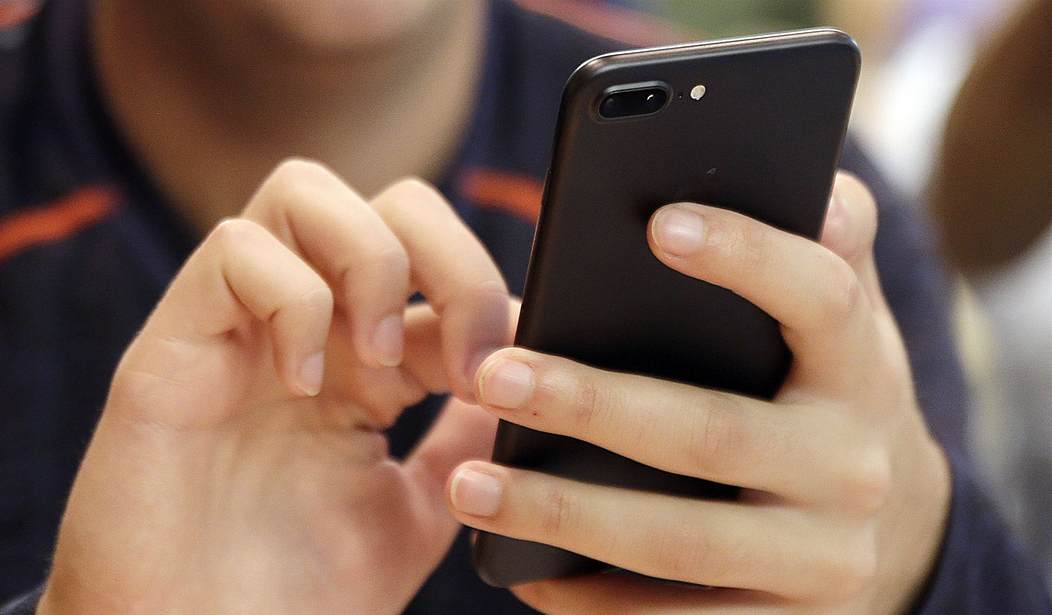Earlier this week, Texas Attorney General Ken Paxton announced his office is suing Aylo Global Entertainment—the owner of Pornhub and other adult websites—for failing to follow Texas’ law, HB 1181, mandating that these sites verify the ages of their users to prevent underage access. Since 2022, eight states have passed such age-verification laws with large bipartisan majorities, and many more are considering similar legislation this year.
The political momentum to protect kids online is undeniable. Unfortunately, the necessary federal protections are lacking, and it’s proving to be a stumbling block in the states’ fight to defend innocence. Until that changes, it will be difficult to fully succeed in shielding children from the predatory pornography industry.
It’s no secret that exposure to pornography is bad for children. Moreover, the government has long recognized its own compelling interest in protecting kids from explicit content. That’s why America has had obscenity laws on the books for decades, regulating what content could be aired on television and radio. Remember singing every word to a song on the radio only to find it on YouTube and discover it was much more colorful in its original version?
However, thanks to a 1997 Supreme Court decision, the internet has been treated differently than its broadcasting counterparts. In Reno v. ACLU, the Court ruled that, while it is important to protect children from obscene material, the internet was not as pervasive as television and radio and therefore need not be subject to the same level of regulations.
Perhaps that was once true, but much has changed about the nature of our media consumption since that time. Just ten years later, the first smartphone hit the market and totally changed the game, taking the internet from a stationary, computer-room experience to a personal accessory. Judicial precedent has not kept up.
Meanwhile, the availability of pornography and its use among kids has exploded. According to a report from Common Sense Media, in 2021, 71 percent of 12-year-olds had their own smartphones. That is the same age on average when most children report first being exposed to porn. Many begin viewing it even earlier.
Recommended
The recent state push to protect children from this onslaught has been a welcome, and much needed, development. However, these efforts are beginning to show their limitations. State authorities are increasingly encountering challenges in enforcement—for example, although Pornhub has complied with Louisiana’s ID verification requirements, it has simply ignored the law or chosen to block all user access in other states, which is what prompted Texas’ lawsuit. Compliance by other adult sites has been similarly hit-or-miss, and foreign actors are often beyond state grasp.
This pushback makes action in Washington more necessary than ever. While states’ limited jurisdiction constrains their ability to hold online porn companies accountable, especially those based in other countries, federal authorities have much greater tools to enforce these provisions. Federal legislation would also reestablish, at a national level, the fact that obscenity is not free speech and therefore not given blanket protection by the First Amendment, contrary to the claims of self-nominated “free speech” activists.
Thankfully, Sen. Mike Lee (R-Utah) and Rep. Mary Miller (R-Ill.) have introduced the SCREEN Act, which would accomplish all this and more: It mandates that any website that monetizes obscene content must implement age-verification before allowing access to its materials. It gives platforms free rein to develop their own technology or use a third-party provider. It strengthens enforcement by extending the IP verification to include the use of VPNs. And it protects user privacy by extensively prohibiting the collection of identifiable data.
It is long past time that our national leaders take action to protect kids from obscene content online. As the activity in the states has proven, such a policy has support across the political spectrum. Already, similar restrictions exist preventing minors from buying alcohol or tobacco or engaging in sports betting—and this technology could easily be extended to online porn. The most innocent among us deserve the best protections we have to offer; federal lawmakers should ride the current momentum and make our children the priority of 2024.
Sandra Kirby is the director of government affairs for American Principles Project.

























Join the conversation as a VIP Member